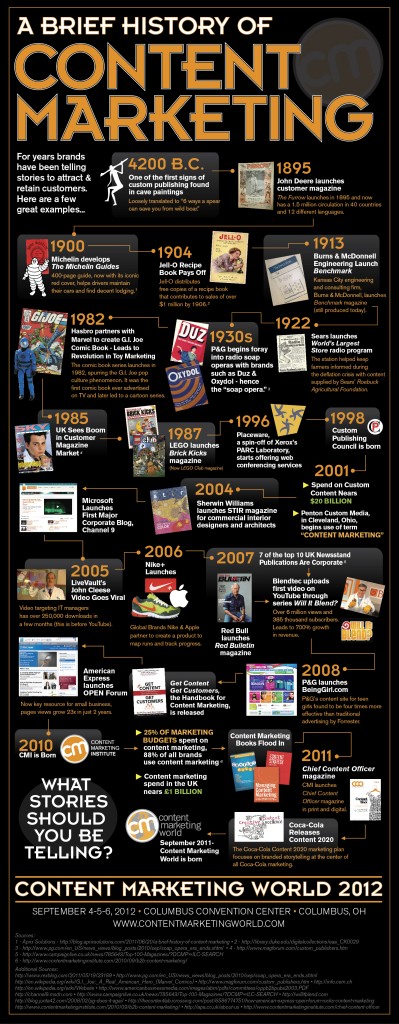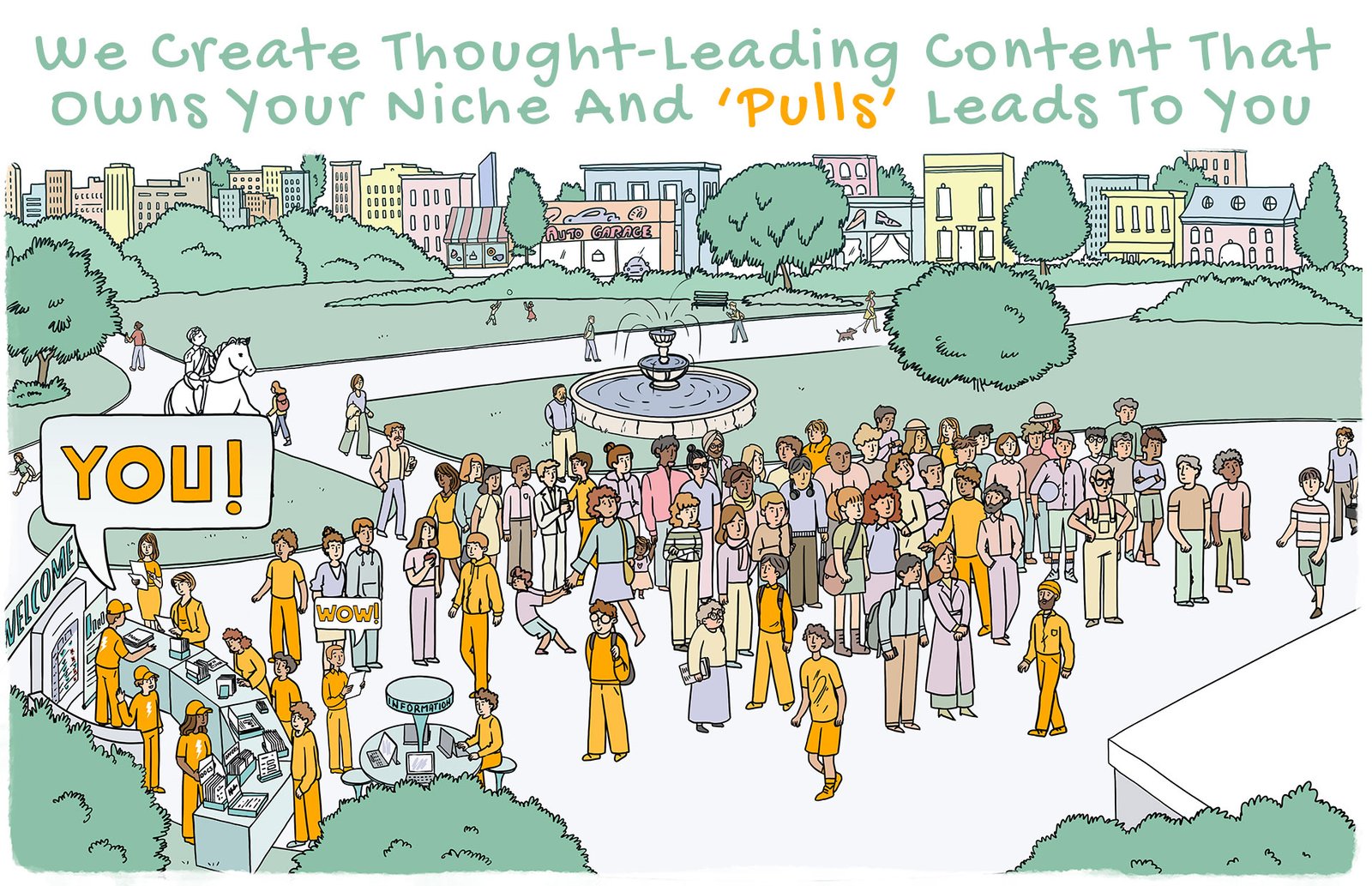A Brief History Of Content Marketing
The Internet Gave Buyers Power Sales Are Now Buyer-Centric
Customers are able to buy more, and more differentiated, products than ever before. They can research and find things others say about your company or product. They can purchase extra-regionally, online. The result is that the Buyer Journey is buyer-driven, and therefore demands buyer-centric content. The entire Buyer Journey happens at the discretion, convenience, and prerogative of buyers. They don’t want to see your ads. Ever, really. This is why you have to show 10,000 ads to get 200 clicks, 1 of which will convert. Why not create and offer the content they seek when searching during the ‘Buyer Journey’?


Marketing Has Become Decentralized
Buyers have more information, options, and entitlements than ever before, and are less inclined than ever before to click on your ad. This is why click-through rates are so absurdly low – even when there’s an exact keyword match. At scale, you get clicks, that seldom convert. Getting that ROI to work out has become increasingly difficult. Below is what happened with Web 2.0, smart phones, dynamic social media, virality, and the all-important user-generated content.
The Internet became ‘people-powered’, rather than ‘company powered’ between 2008 and 2010. This was the birth of Web 2.0, ‘user-generated’, dynamic content, and it was facilitated by smart phones that made content easier than ever to create, and social media, that made the velocity of that content faster than ever.
Facebook, Google, YouTube, And Twitter don’t create content; they’re the container. The contents are the users on those platforms – the people. And whereas MySpace required that you seek out content from your social network, Facebook and Twitter promulgated it with algorithms, tuned to capture your interest. Web 2.0 is sometimes called ‘the dynamic web’, as opposed to pre-2008, which was comprised largely of ‘static web’ sites and social media platforms.
User-generated content constitutes the bulk of the Internet, and it – and impartial third-party industry sites and publications – has more credibility to consumers than advertisements.
Mark W. Schaefer points out that 80% of the what is known about your company is not information you publish!
In addition to users on the website generating content and conferring social currency through recommendations, they are prodigious consumers of content as well: The average person digests 7 hours of Internet content each day.
Content is king, and while it’s not easy to speak from your platform or perspective and be entirely objective, it is possible. They Ask, You Answer lays out a great game plan, if you’re so inclined.
Marketing During Ogilvy (1950's) Vs. Post Web 2.0
Marketing During Ogilvy (1950's) Vs. Post Web 2.0
PDF Title


Marketing, Content, And 'Ladder' Experts We Recommend
Reach Out

